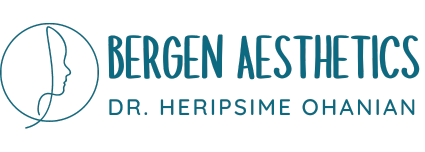To dispel some of the common myths about osteoporosis, Dr. Ohanian offers insight about what you can do to boost your health despite having the disease, and how you can prevent long-term health complications if you have risk factors for osteoporosis.
Understanding osteoporosis
Osteoporosis is a chronic disease that describes progressive bone loss. Normally, bone continuously breaks down and your body produces new, healthy bone to replace it.
With osteoporosis, your body isn’t able to keep up with the replacement of bone as it breaks down. This typically occurs because of age-related changes your body goes through as you get older. Osteoporosis is especially common in women who have reached their postmenopausal years due to the loss of estrogen, a hormone that contributes to healthy bone production.
When you have osteoporosis, your old bone breaks down, but new bone isn’t forming fast enough. This makes your bones weak, brittle, and more susceptible to breaks and fractures. You’re more likely to begin losing height and develop noticeable changes in your posture. Chronic pain is also a common side effect of advanced osteoporosis.
Common osteoporosis myths debunked
Here are some of the most common misconceptions – and truths – about osteoporosis:
Every elderly person gets osteoporosis
While it’s true that your risk for osteoporosis increases as you get older, there are things you should be doing at every stage of life to reduce your risk for premature bone loss.
You achieve maximum bone mass in your late teens and early 20s. While many young people aren’t always thinking about the distant future, the earlier you start protecting your bone health, the better.
By incorporating sufficient amounts of calcium, vitamin D, and exercise into your life, starting while you’re young, you can keep your bones strong and healthy and avoid ending up with osteoporosis when you’re older.
Don’t rely solely on supplements
Many people rely on supplements to get bone-healthy nutrients, like calcium and vitamin D. However, staying proactive about osteoporosis prevention involves eating a healthy diet balanced with good amounts of calcium and other nutrients.
Make it a point to discuss your regular diet with Dr. Ohanian. She can determine how much calcium and vitamin D you should be getting in your diet and how much you need to get through supplementation.
I’m fine because I don’t have symptoms
Osteoporosis actually begins developing many years in advance of symptoms. When you suffer a bone fracture or break due to osteoporosis, the disease has already weakened your bones. You also have already begun losing a significant amount of your bone mass.
Dr. Ohanian offers in-office, noninvasive bone density testing to help you stay ahead of progressive loss of bone density. Using a special X-ray machine, she can assess the amount of minerals in your bones and determine if you have osteoporosis or if you have risk factors for the condition.
Preventive screenings can identify early signs of osteoporosis, so you can make the diet and lifestyle changes necessary to protect your bone health.
Broken bones are the biggest concern
While bone fractures are one of the most common complications of osteoporosis, the disease can progress enough to prove fatal. When weak and brittle bones result in a hip fracture, recovery isn’t guaranteed.
This is often due to complications that result from a hip replacement surgery, such as side effects of anesthesia, heart arrhythmias, and serious infections. People with existing health conditions may not even be a candidate for a hip replacement, resulting in chronic, debilitating pain and disability.
It’s too late for preventive measures
The reality is, it’s never too late to start taking steps to improve bone health. In addition to incorporating a healthy diet and exercise into your life to rebuild bone strength, you should also quit smoking and limit your use of alcohol.
If you have a family history of osteoporosis, speak with Dr. Ohanian about preventive bone density screenings and your options for treatment. She offers comprehensive services for osteoporosis, including biphosphate therapy and hormone replacement therapy.
To schedule a consultation to discuss your osteoporosis risk factors, contact Bergen Aesthetics today by phone or by requesting an appointment online now.

